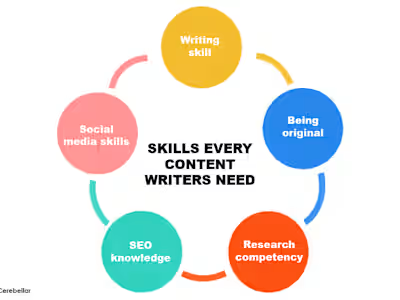The Power of Storytelling in Content Marketing
In the digital age, where attention spans are fleeting and competition is fierce, storytelling has emerged as a powerful tool in content marketing. From brand narratives to customer testimonials, compelling stories have the ability to captivate audiences, evoke emotions, and drive action. Join me as we explore the transformative power of storytelling in content marketing and how brands can harness its potential to connect with their audience on a deeper level.
1. Creating Emotional Connections: At the heart of storytelling lies the ability to forge emotional connections with the audience. By weaving narratives that resonate with their experiences, values, and aspirations, brands can create a sense of empathy and relatability. Whether it's through personal anecdotes, case studies, or user-generated content, storytelling humanizes the brand and fosters trust and loyalty among customers.
2. Differentiation and Brand Identity: In a saturated marketplace, standing out from the competition is paramount. Storytelling offers a unique opportunity for brands to carve out their identity and differentiate themselves from the crowd. By articulating their values, mission, and unique selling proposition through storytelling, brands can establish a distinct voice and personality that resonates with their target audience.
3. Engaging and Memorable Content: Storytelling transcends traditional marketing tactics by transforming mundane messages into engaging narratives. Whether it's through blog posts, videos, or social media campaigns, storytelling captures the audience's attention and leaves a lasting impression. Memorable stories are more likely to be shared, driving organic reach and amplifying the brand's message across digital channels.
4. Driving Action and Conversion: Beyond engagement, storytelling has the power to drive action and conversion. By crafting narratives that highlight the benefits and outcomes of using the product or service, brands can inspire consumers to take the desired action, whether it's making a purchase, signing up for a newsletter, or sharing their own stories. Effective storytelling compels the audience to move from passive observers to active participants in the brand journey.
5. Measuring Success and Iteration: As with any marketing strategy, measuring the success of storytelling efforts is essential. Brands can track metrics such as engagement rates, conversion rates, and brand sentiment to gauge the impact of their storytelling initiatives. Based on these insights, they can iterate and refine their storytelling approach to continuously optimize performance and drive results.
In conclusion, storytelling is not just a buzzword in content marketing; it's a powerful tool that has the ability to transform brands and elevate their digital presence. By harnessing the emotive power of storytelling, brands can forge deeper connections with their audience, differentiate themselves in the marketplace, and inspire action that drives business growth and success.
Like this project
Posted Mar 19, 2024
The Power of Storytelling In Content Marketing





